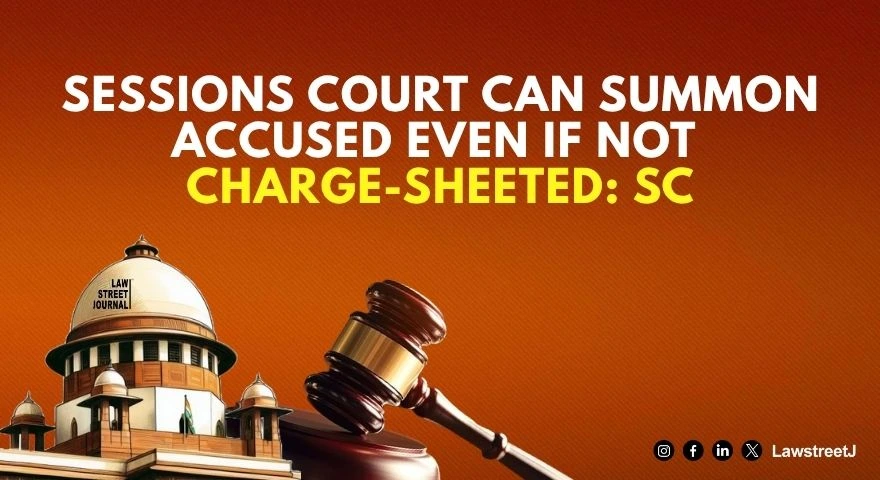NEW DELHI: The Supreme Court has declared that a sessions court has been invested with the power to summon a person as accused to stand trial at the outset, even if he has not been charge-sheeted by the police but whose complexity in the crime appears in the evidence available on record.
A bench of Justices J B Pardiwala and R Mahadevan said the court of sessions is empowered to take cognisance of the whole of the incident constituting the offence.
"It is thus invested with the complete jurisdiction to summon any individual accused of the crime," the court said.
It rejected an argument that the trial court cannot issue summons in exercise of the powers under Section 193 of the CrPC as the Magistrate while committing the case to the court of sessions had already taken cognisance of the offence.
"Once the court takes cognisance of the offence (not of the offender), it becomes the court's duty to find out the real offenders and if it comes to the conclusion that besides the persons put up for trial by the police, some others are also involved in the commission of the crime, it is the court's duty to summon them to stand trial along with those already named, since summoning them would only be part of the process of taking cognisance," the bench said.
In the case, appellant Kallu Nat alias Mukesh Kumar Nagar was aggrieved with the Allahabad High Court's order, which dismissed his revision petition against the decision by Kanpur Dehat's court to summon him as accused in a rape cum murder of a woman on an application filed by her husband under Section 193 of the CrPC.
The appellant's counsel contended if at all, the petitioner could be summoned, it could be only during the trial on the basis of oral evidence under Section 319 CrPC.
Discarding the contention, the bench said, "It is absolutely incorrect to assert that the petitioner could have been summoned as an accused only during the course of trial under the provisions of Section 319 CrPC. Section 319 CrPC stands absolutely on a different footing."
In the present case, the court pointed out, the court of sessions has come to the categoric conclusion that the petitioner though not named at the earliest in the FIR, yet the investigation revealed his involvement along with the charge sheeted accused.
On the larger canon, there appears to be no logic for narrowly construing the statute so as to denude the court of sessions of the power to summon a person to stand his trial at the outset even when wholly convinced of a prima facie case against him on the basis of materials in the final report, the bench said.
Disclaimer: This content is produced and published by LawStreet Journal Media for informational purposes only and does not constitute legal advice. The views expressed are independent of any legal practice of the individuals involved.















